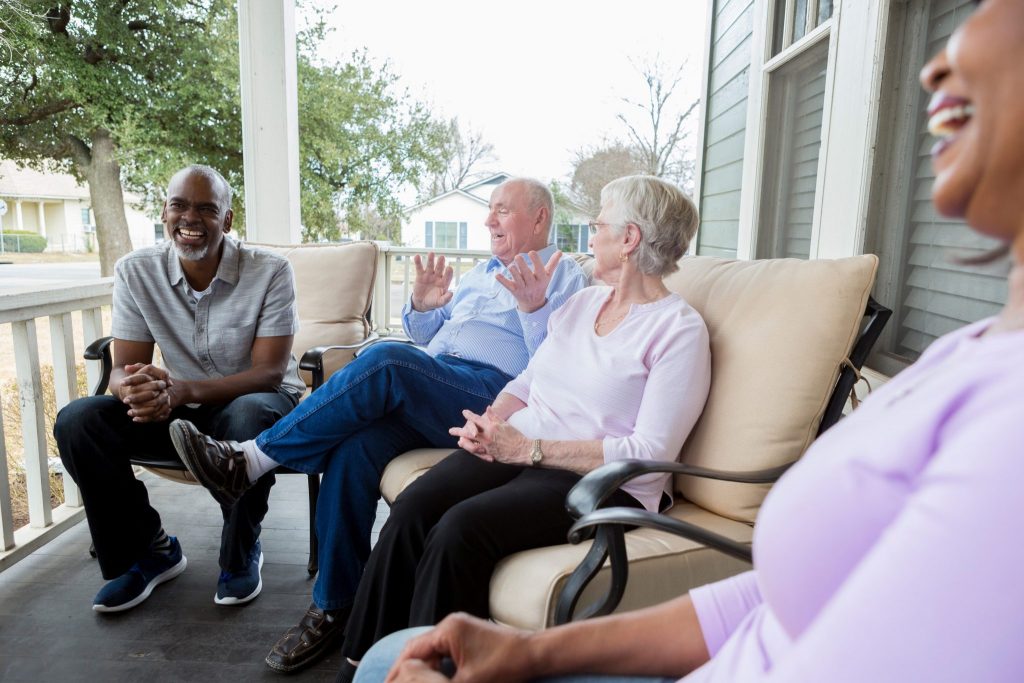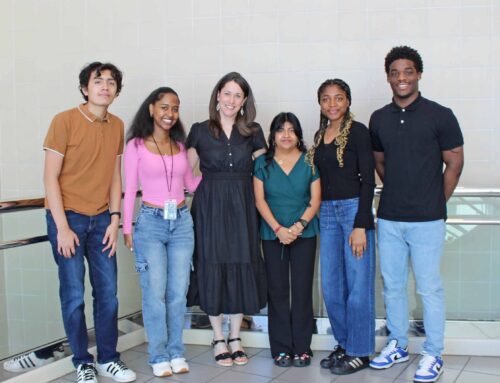Won’t you be my neighbor?
 A couple celebrating their 50th wedding anniversary was asked the secret of marriage. She replied, “When he proposed, he got down on a knee, looked me in the eyes and said, ‘Will you have a conversation with me for the rest of our lives?’ ”
A couple celebrating their 50th wedding anniversary was asked the secret of marriage. She replied, “When he proposed, he got down on a knee, looked me in the eyes and said, ‘Will you have a conversation with me for the rest of our lives?’ ”
Twenty years ago this month I started a conversation with you about our life together in these parts of Dallas. It may seem to you that you are reading the musings of a minister as if listening to a sermon preached to no one in particular. But that isn’t how I have written these 240 columns thus far.
Each month, I have imagined you on the other end of a conversation, the Advocate in your lap, nodding in agreement or shaking your head in disagreement with my prose or my pose of this idea or that.
A favorite experience across these years has been bumping into you in the neighborhood and hearing your appreciation for the pieces. These columns have been a free gift, an expression of my love for our community and my desire for it to be all it can be.
It’s also been an exercise in public theology; that is, how religious convictions can contribute to the common good — how belief and community are tied together, even when beliefs conflict. Religion, after all, comes from a root meaning “to tie together, to refasten or rebind” what has been separated, broken or frayed.
Some people ironically and tragically use faith to dominate others and diminish them. Faith should drive us toward, not away from, one another. “Love your neighbor” is a universal religious duty. Faith is a way of seeing the world as it should be, and then it’s the courage to act with God to bring it to pass.
Too often faith is viewed as something strictly private. We wrongly assume the separation of church and state means we are on the polite side of the law only when we keep our faith to ourselves. Authentic faith is always personal but never private. It fires our imagination about public life, about how we live with people on our street, in our state and across all borders. It expands the soul to embrace greater difference. It works to turn the other into another.
Faith teaches us that a flourishing life begins with divine gift, rather than human achievement. As the poet Gerard Manley Hopkins put it, “There lives the dearest freshness deep down things.”
There is enough for all of us. We don’t have to compete to live well; we only have to cooperate. Faith reaches out a hand to hold in comfort, to lift up in aid, or to shake in friendship.
Thanks to a recent documentary, we have been blessed by a revival of the spirit of Fred Rogers, who, through his PBS television show, helped children and parents alike learn the meaning of quiet kindness. His signature phrase is a good summary of my aspiration for these columns: Won’t you be my neighbor?





